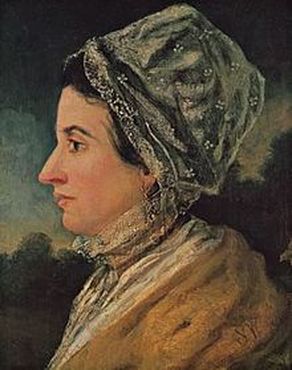 With her grandfather a peer of the realm and her great-uncle Earl of Anglesey, Susanna was born into a cultured and learned family with aristocratic roots. Although ordained in the Church of England in 1644, her father, Dr Samuel Annesley, became a dissenter and was ejected from his living in 1662. His house in Spital Yard became the centre of a large London network of Dissent. Thus, Susanna witnessed many debates about Establishment and Freedom, on the Prayer Book and the Bible, and on free will and foreknowledge. Before the age of thirteen, she had drawn up a list of the main points of controversy between the established Church and Dissent, from which she reasoned that she preferred the Church of England. Susanna was much better educated than the average woman in her day and she wrote many letters, meditations and scriptural commentaries, sadly many lost in the fires at Epworth Rectory. When Samuel Wesley met Susanna in 1682, he found her beautiful to look at, fascinating to listen to, and in complete contrast from his poor and lowly background. After his graduation from Oxford, they married in November 1688. Their marriage lasted 46 years, despite a tempestuous relationship: in a letter to John written in 1725, Susanna confessed, "But ‘tis an unhappiness almost peculiar to our family, that your father and I seldom think alike." She had a strong principle regarding the liberty of conscience, most famously demonstrated when she omitted to say "Amen" at family prayers when Samuel prayed for King William III. (She believed that James II was still the rightful King of England.) This incident caused a rift between Samuel and Susanna, but they were reconciled in July 1702 when the first fire occurred at Epworth Rectory. Their most famous son, John, was born the following June. After the most famous rectory fire, from which John Wesley was rescued – "a brand plucked from the burning", Susanna felt that as God had delivered her children, so now she must provide a first-class education for them. After this momentous event, she also desired to develop her own religious life. While Samuel was in London during the winter of 1711-12, he was annoyed to discover that his wife was conducting services in the Rectory in his absence. He reprimanded her, out of jealousy perhaps, as her services were proving more popular than his own in the parish church! As well as being wife, mother and housekeeper at the rectory, Susanna was schoolmistress. She ordered her big family (ten of her nineteen children survived into adulthood) and servants in a methodical way, with everything done according to rule and time. Every Wesley baby was taught to cry softly, if they cried at all! The children were taught a delightful courtesy towards each other and towards their servants and neighbours. They must never eat between meals but eat all that was provided at mealtimes. Lying, stealing and playing in church was punished, but every act of obedience was commended and rewarded. Susanna’s main aim was to get the children away from what she called "self will" into a disciplined life where duty to God and to others was paramount. The children learned The Lord’s Prayer as soon as they could speak, and while still very young they were instructed to distinguish between Sunday and other days of the week. On each child’s fifth birthday, she took that particular boy or girl into a room away from the others, and on that one day taught him or her the alphabet. Susanna made time in her busy schedule to talk to each of her children about God: she used to have one evening for each child (Thursday was John’s, and years later, when an Oxford don, he wrote to his mother, begging her still to think of him on Thursday evenings.) Following their home education, her three sons went up to great public schools in London where each did well. The girls learned Greek, Latin and French from their mother, as well as how to order a house. For John Wesley, his upbringing by Susanna laid a foundation of honesty, discipline, hard work and the constructive use of time, which became evident in the rules he later set out for his preachers and the members of his Societies. Susanna is recognised as a devoted mother in Liverpool Anglican Cathedral’s stained glass window dedicated to noble women. Note: Visiting the Old Rectory in Epworth, Lincolnshire, is a wonderful mecca for Methodists – and others! Find out more by visiting their website. Kathleen Povall Comments are closed.
|
Pastoral LettersWritten by the Minister & Members
|
 RSS Feed
RSS Feed